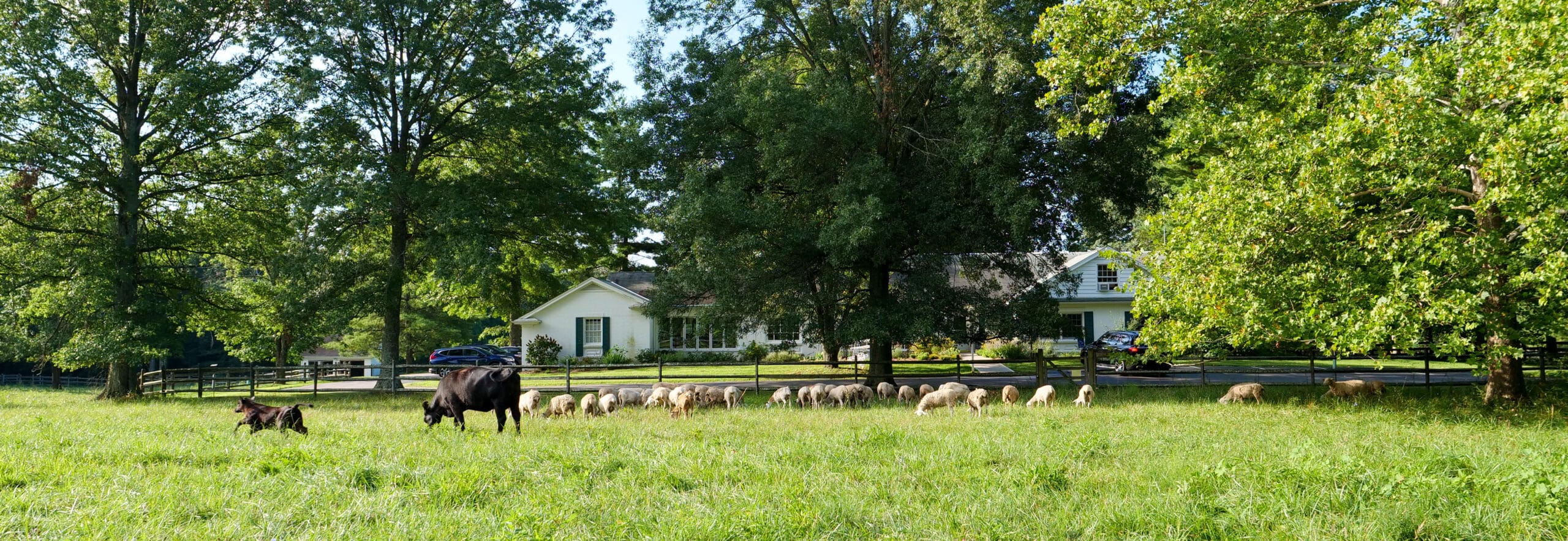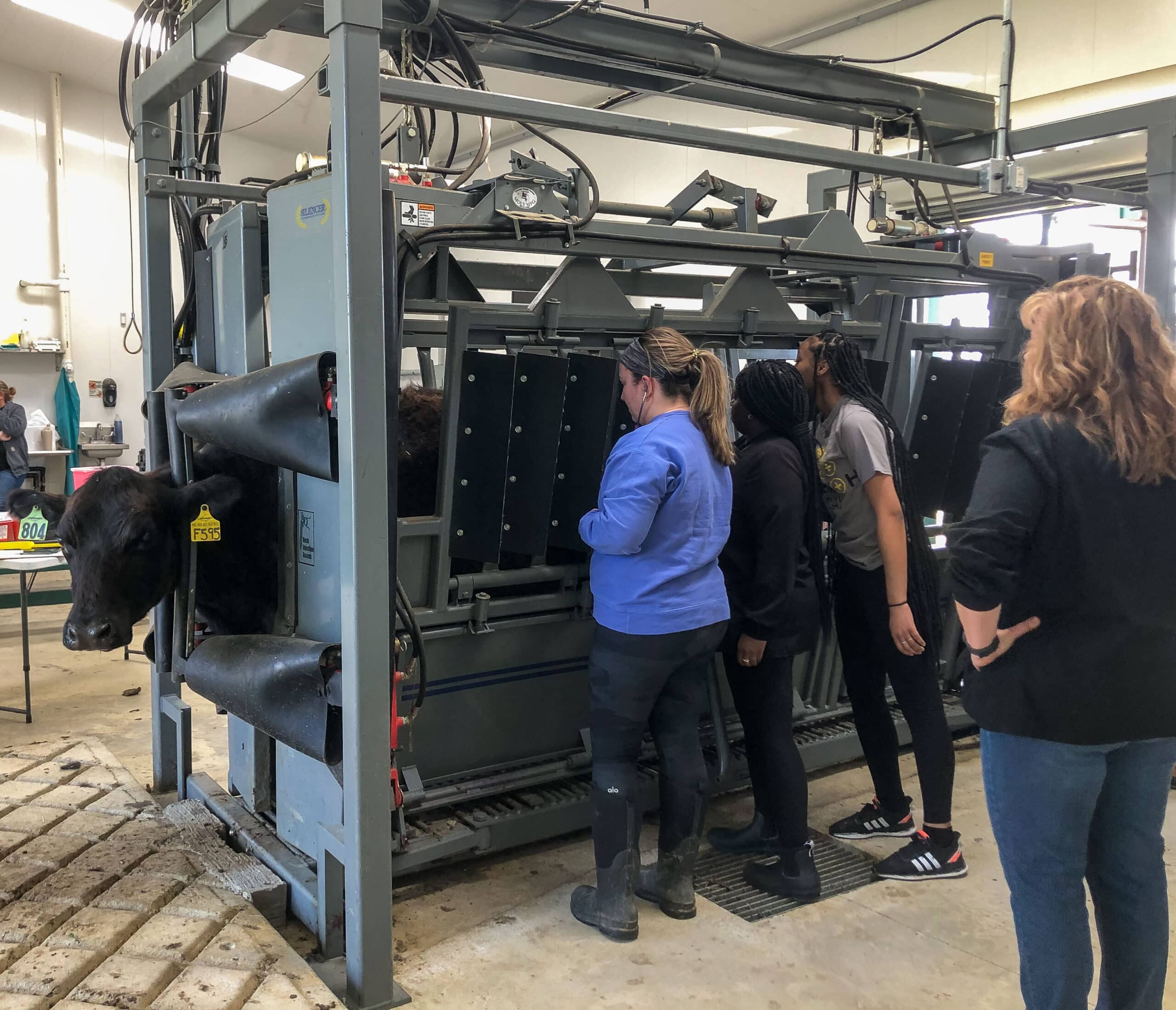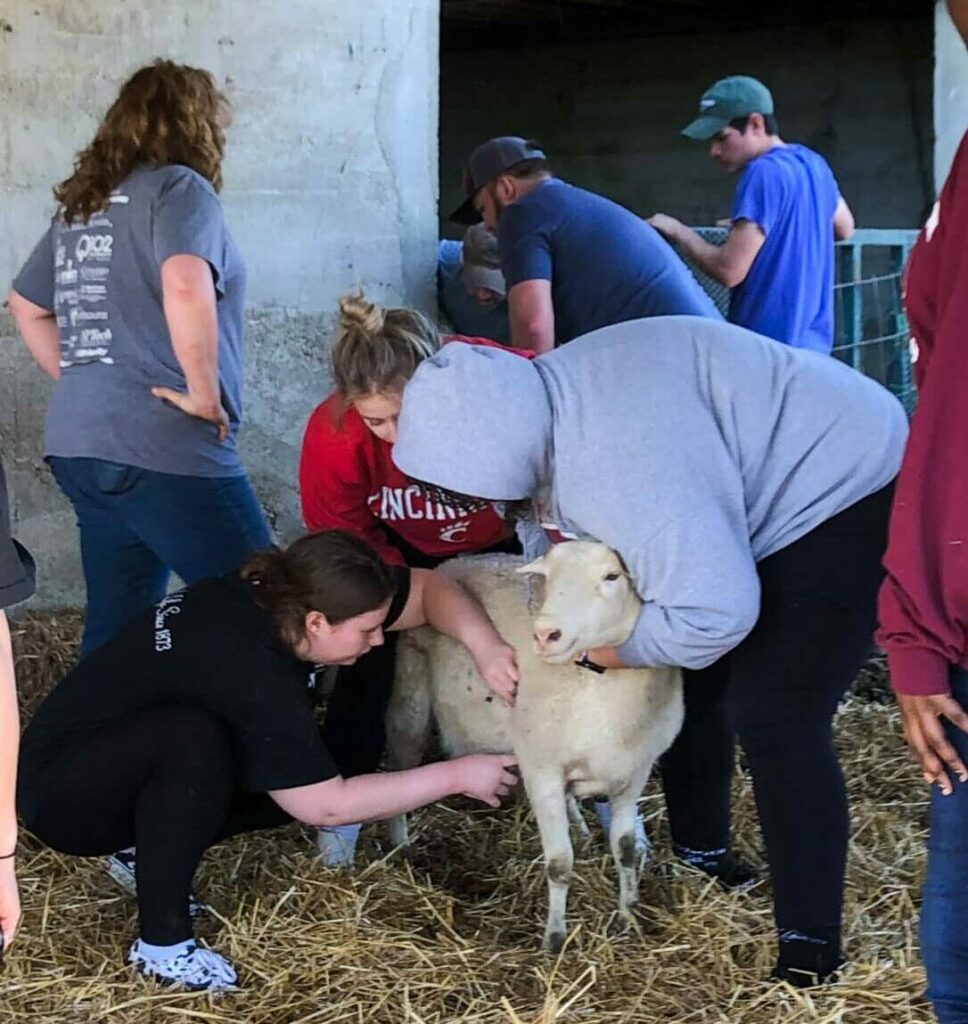Livestock Vaccination

Our Livestock Vaccine Practices
Vaccinations are an important part of the Herd Health Plan at Greenacres Foundation. Under guidance from our veterinarian, we use two vaccinations on our cattle and sheep every year to prevent diseases and ill health. Greenacres partners with the University of Cincinnati Veterinary Technician program by bringing Vet Tech students on-site to gain practical hands-on experience of vaccinating large animals.
Our Director of Agriculture, Michael Cox tells us that, “the vaccines we use are either ‘killed’, meaning they contains an inactive or ‘killed’ version of the disease causing germ, or ‘modified live’ vaccines, which means they contain a viable virus that can replicate, but it’s attenuated and does not cause disease in the animal. We do not use any mRNA vaccines on our animals”.
“We do not use any mRNA vaccines on our animals.”
Michael Cox, Director of Agriculture
The diseases we protect our animals against are common across the US and many of the infectious bacteria/viruses are naturally found in soil and local wildlife populations. Vaccinations protect our animals from clostridia diseases, respiratory disease and reproductive disease. Clostridia diseases are harbored in soil, typically cause rapid death in unvaccinated animals and are untreatable. ‘Blackleg’ and ‘Pulpy Kidney’ are two common clostridia diseases.
Respiratory diseases such as ‘IBR’ and reproductive disease such as ‘Leptospirosis’ cause lethargy, poor growth, lung damage, infertility and abortion in affected unvaccinated animals.
By vaccinating our livestock we are able to provide a safe and nutritious product to our consumers and ensure our livestock can remain healthy and thrive on our pastures. If you have any questions or concerns about how we raise our animals we always welcome queries and are happy to share our generative practices. You can reach us at mail@green-acres.org


